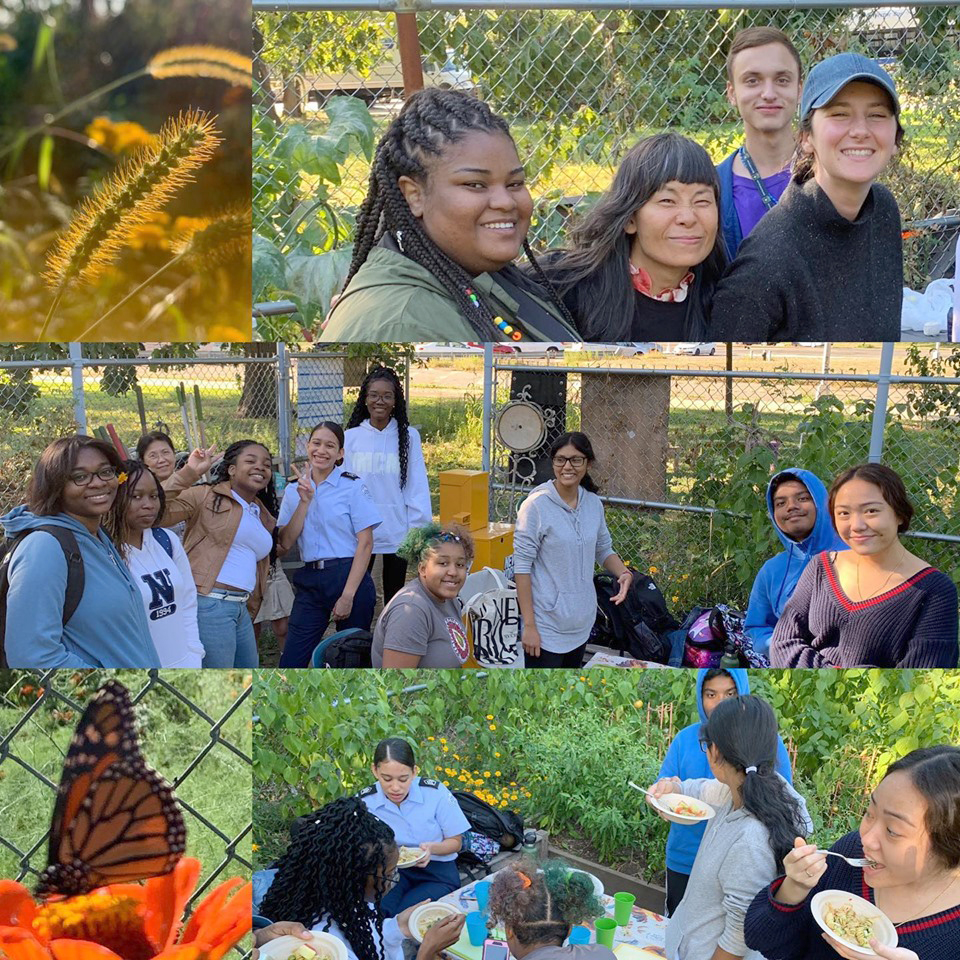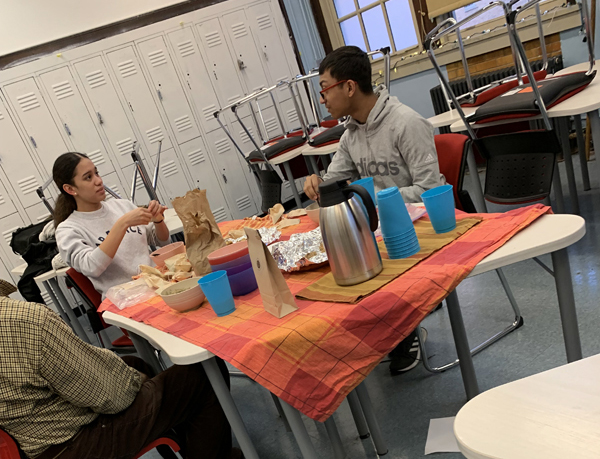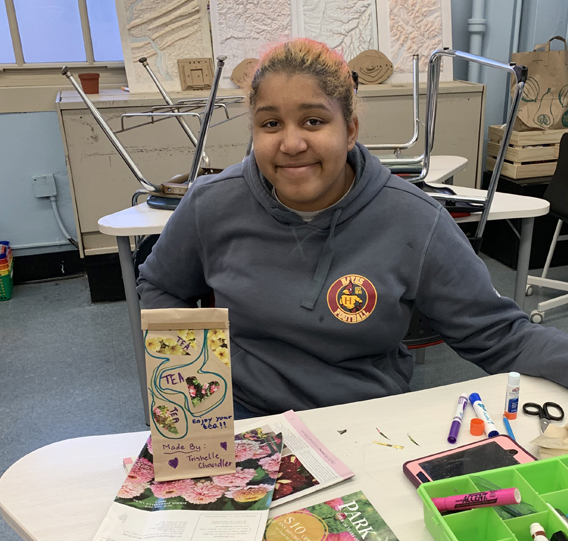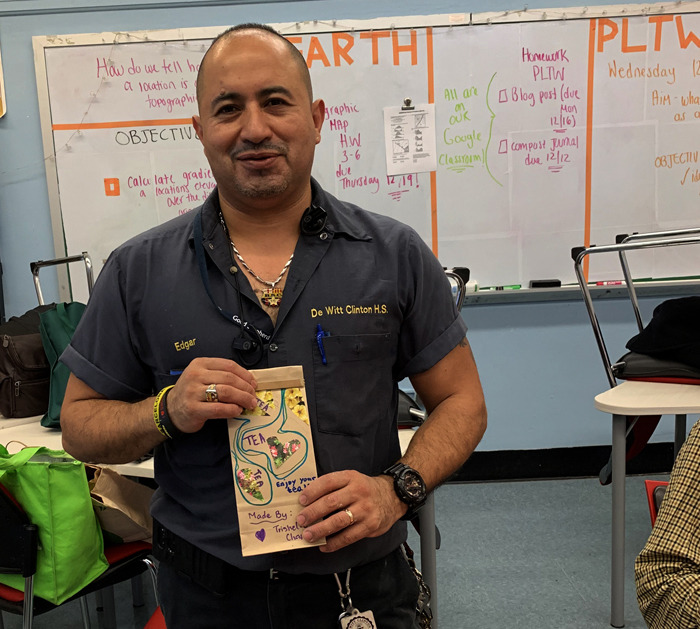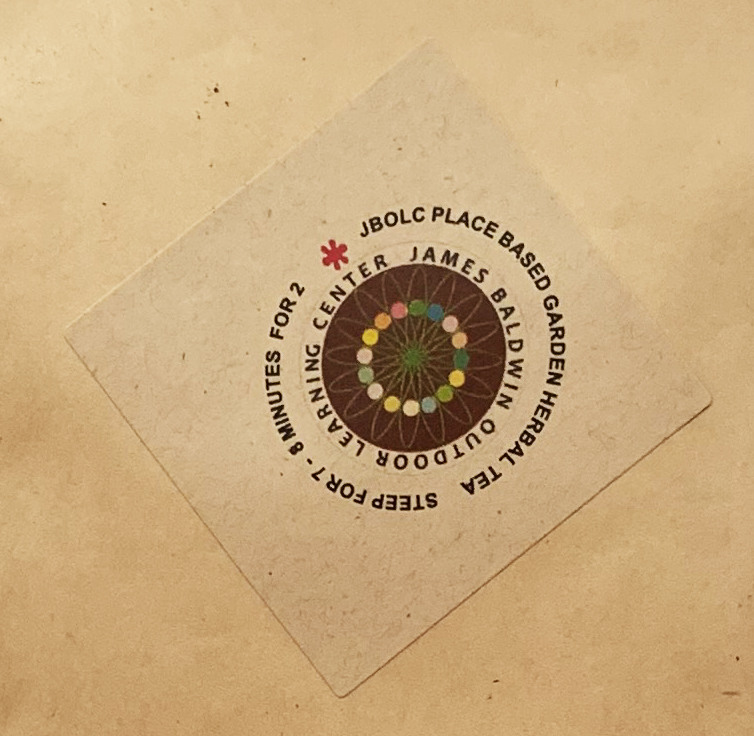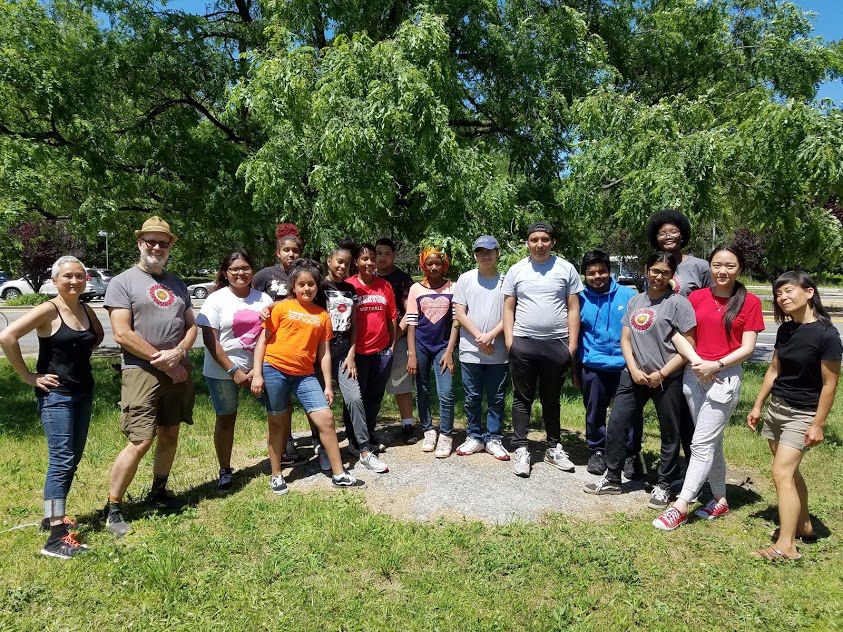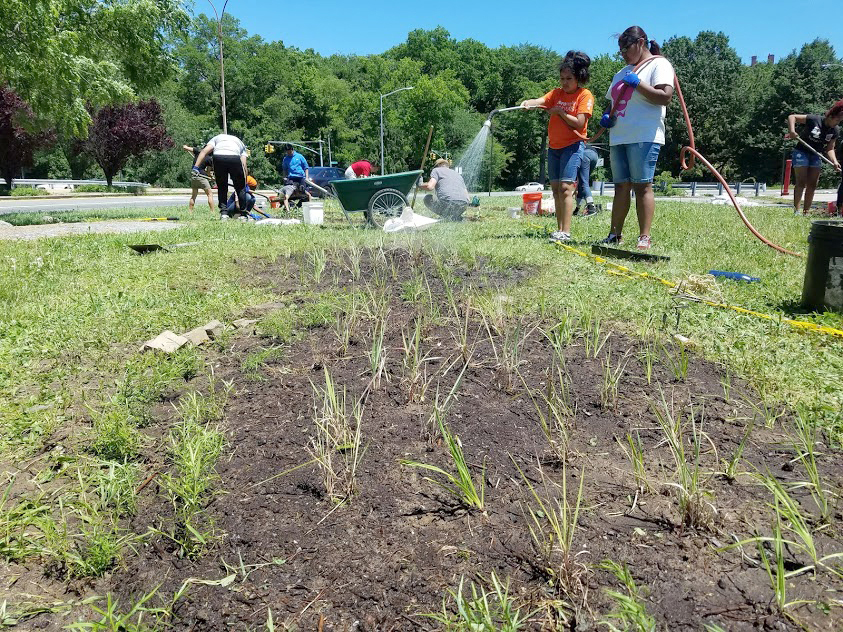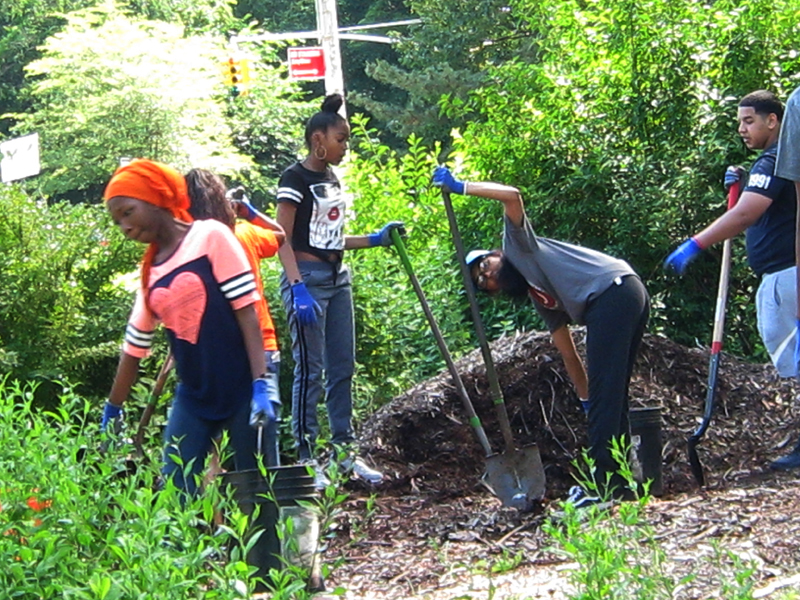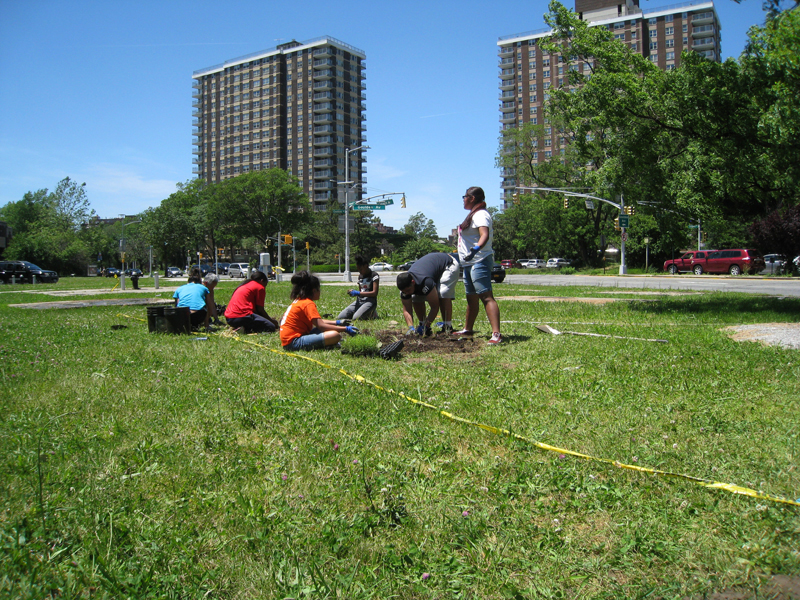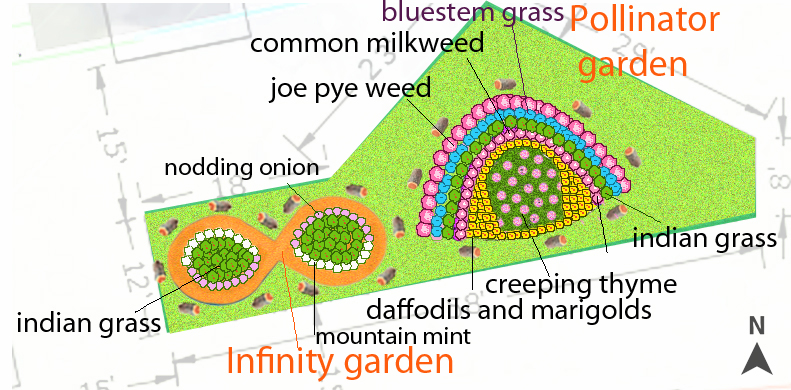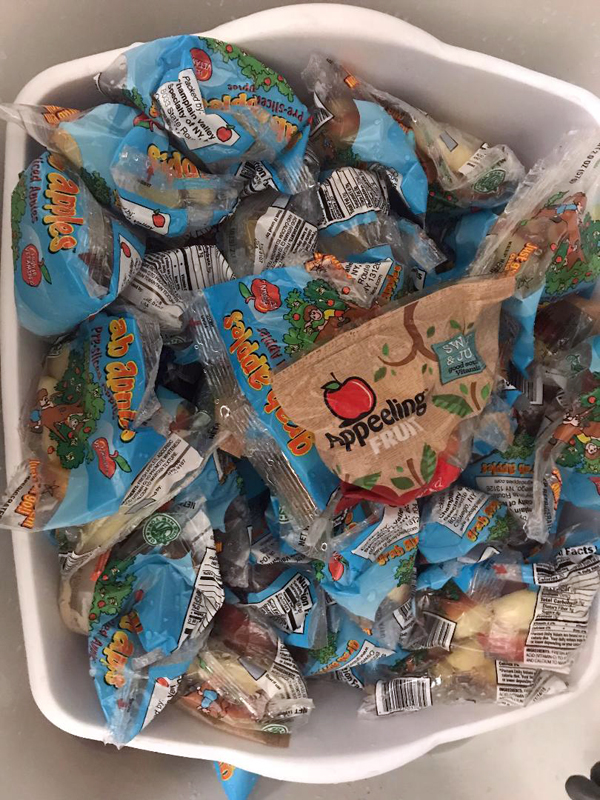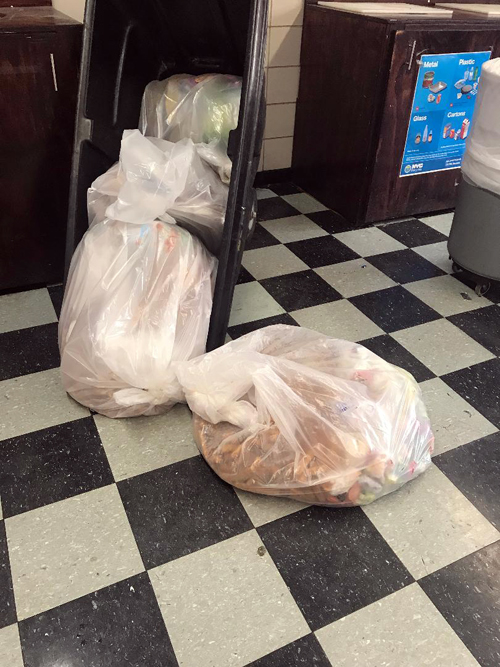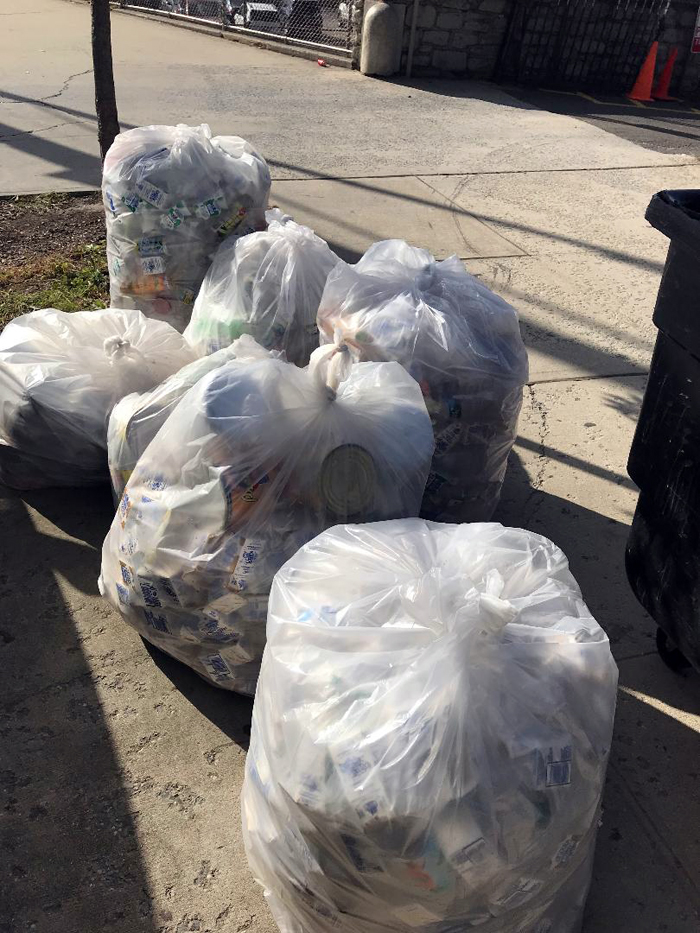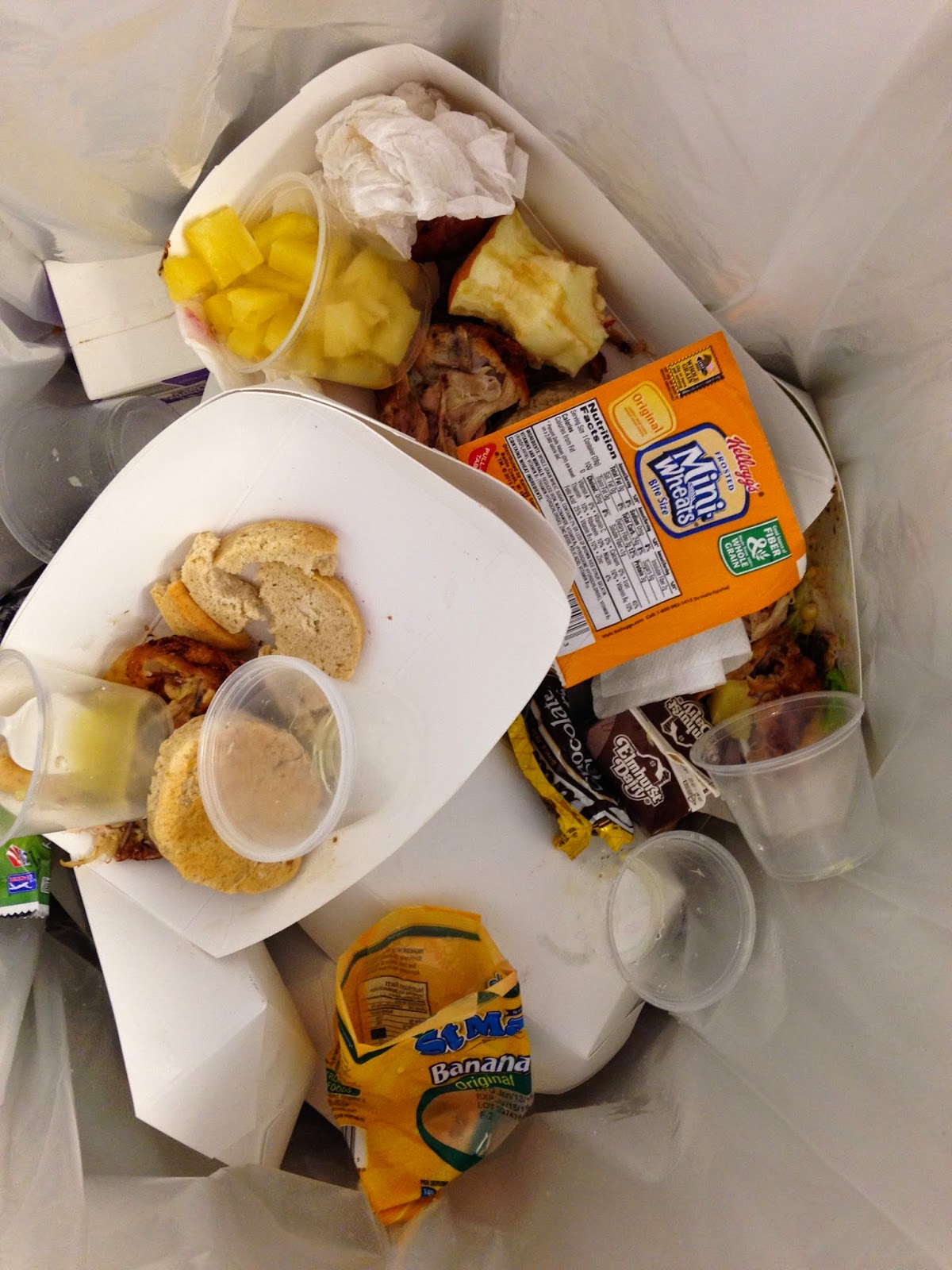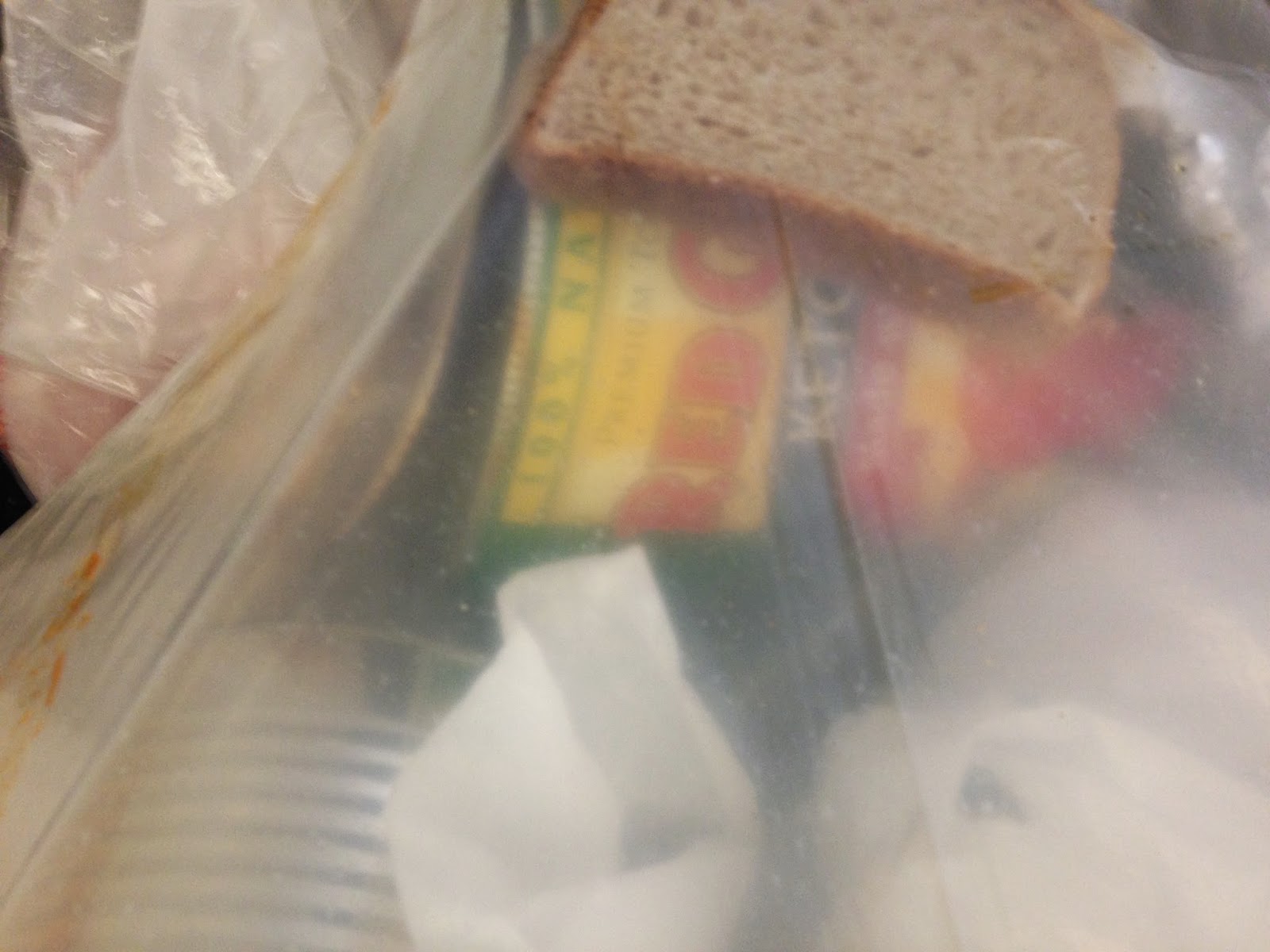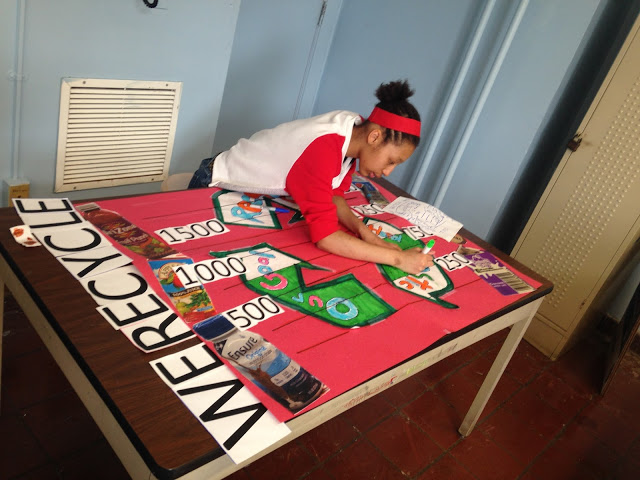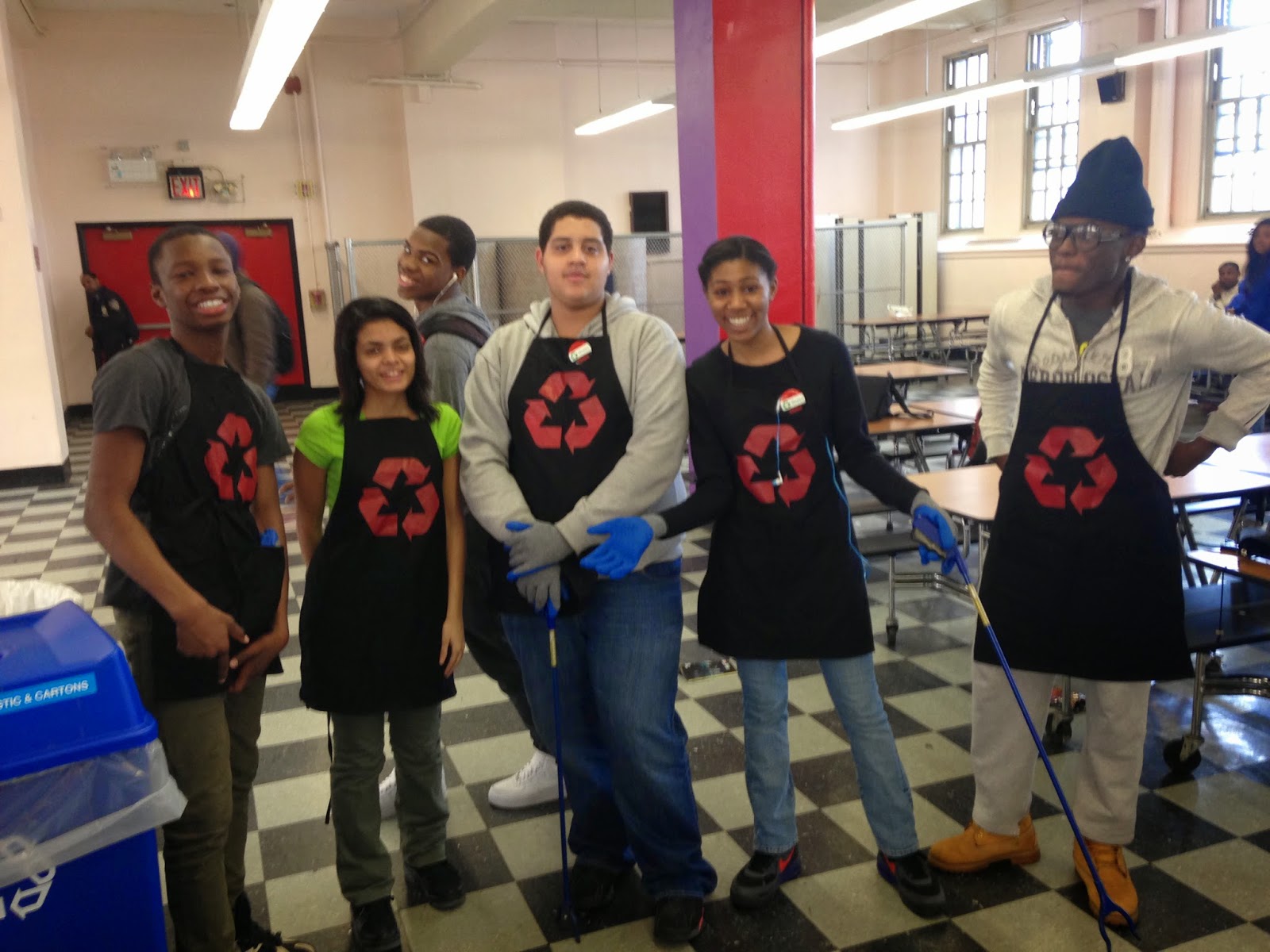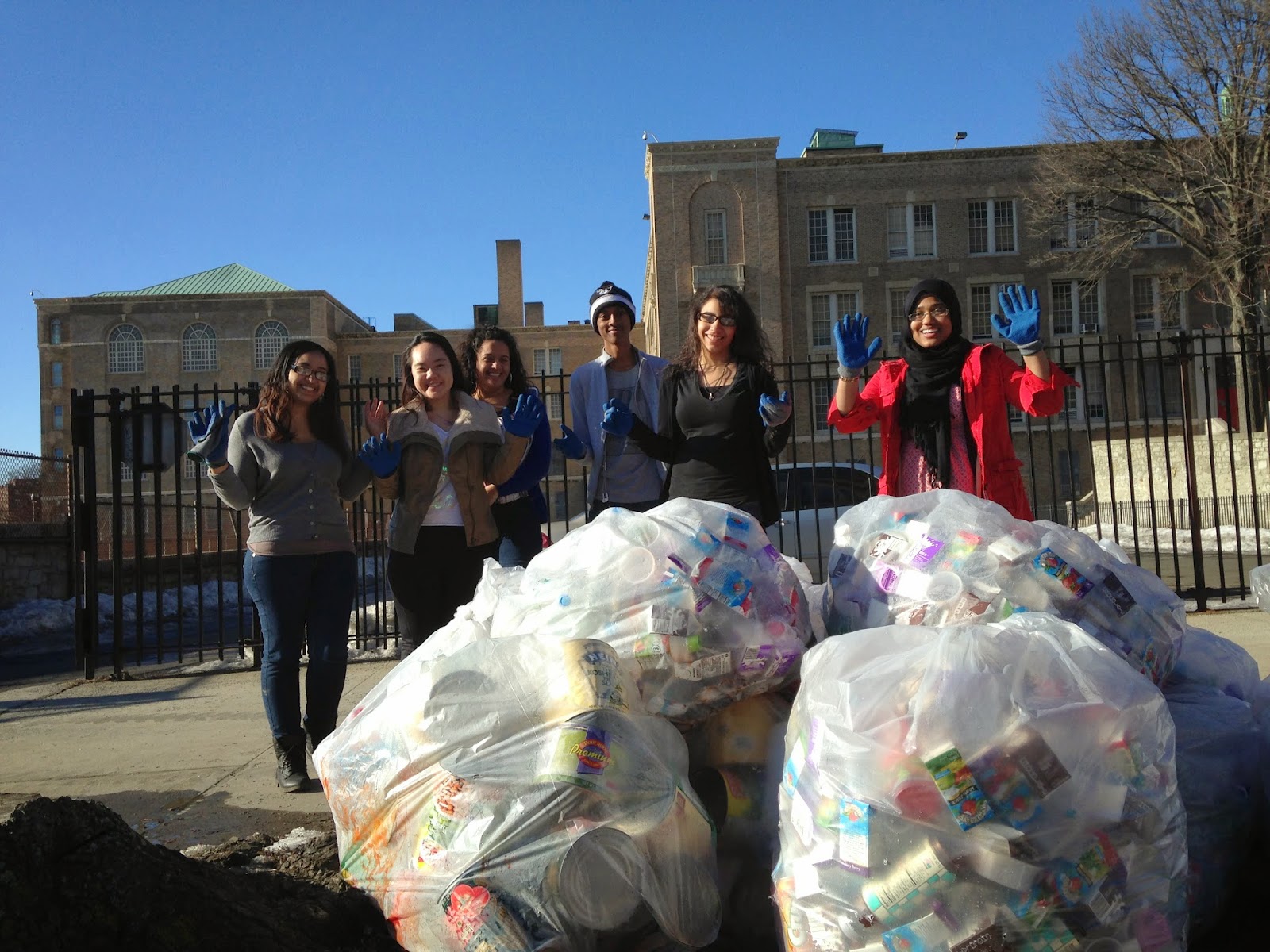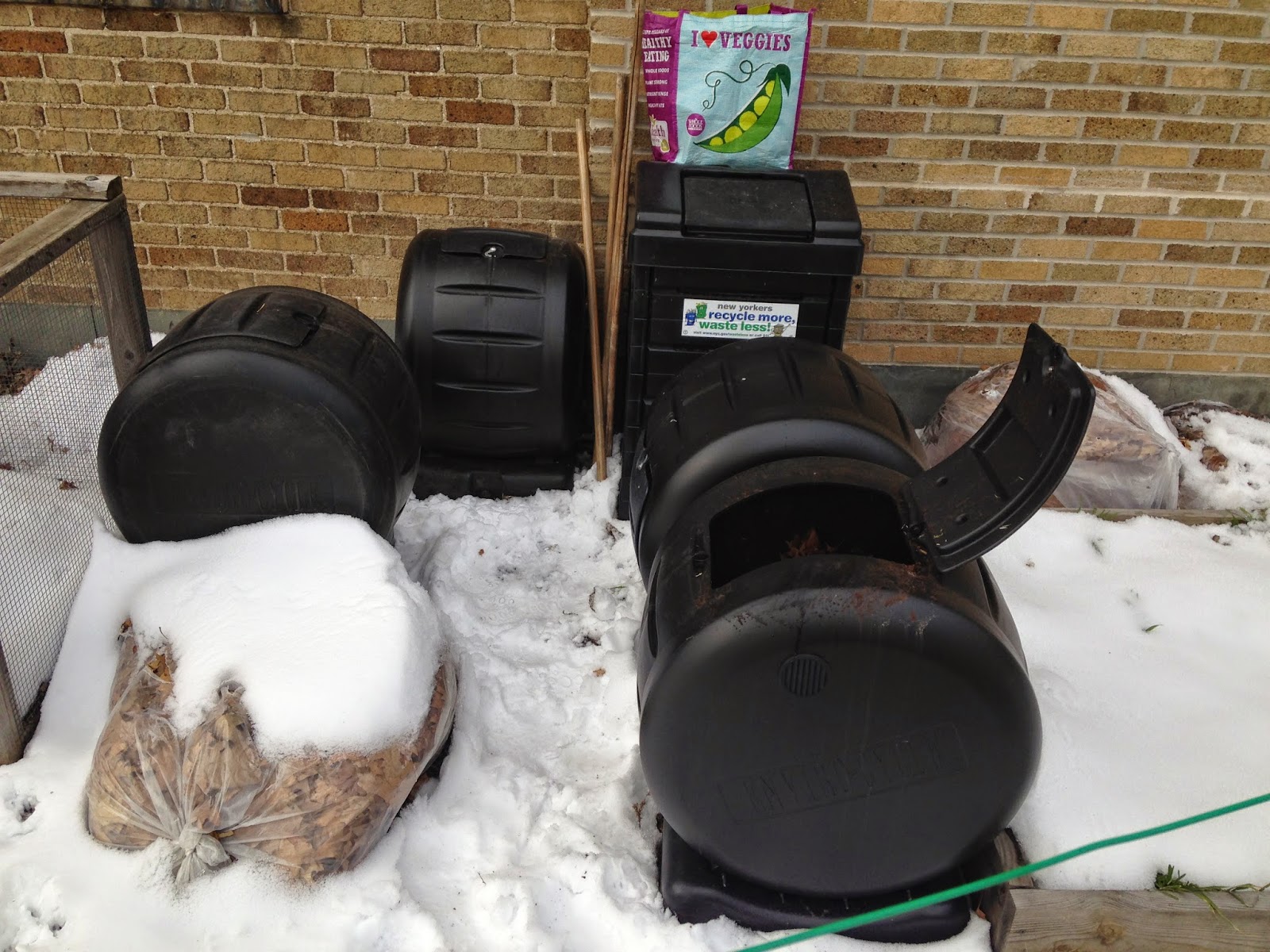Sustainability Education/Green Internship
The objective of Sustainability Education/Green Internship is to introduce students to practical knowledge and sustainable practices in energy production and usage, ecologically friendly design, food production, gardening, composting, materials recovery, food recovery and cafeteria recycling.
One of the gatherings of garden community and Green Interns at Meg's Community Garden
"Holiday Jubilation"
Making JBOLC Placed-based
Tea Gift Boxes
Making JBOLC Placed-based
Tea Gift Boxes
We invited our green interns to join this Paid Internship: "Holiday Jubilation", have fun and make gifts for friends, family and community.
Major activities involved filling tea bags with our garden grown herbal teas, which were prepared at home using dyhydrator and grinder and decorating tea boxes. They were served with our home-made treats; gluten-free chocochip cookies, pumpkin-date-hazulnut cookies and our JBOLC-place based garden tea.
The tea ingredients include lemon balm, camomile, peppermint, sage, rosemary, lavendar, and lemon grass.
We plan to grow more herbs (imagine the gardens filled with lovely fresh aroma all the time!) next year as we can see that this can be developed into a year-round program because it is a nice way to engage our green interns and community in a mutually beneficial way.
Major activities involved filling tea bags with our garden grown herbal teas, which were prepared at home using dyhydrator and grinder and decorating tea boxes. They were served with our home-made treats; gluten-free chocochip cookies, pumpkin-date-hazulnut cookies and our JBOLC-place based garden tea.
The tea ingredients include lemon balm, camomile, peppermint, sage, rosemary, lavendar, and lemon grass.
We plan to grow more herbs (imagine the gardens filled with lovely fresh aroma all the time!) next year as we can see that this can be developed into a year-round program because it is a nice way to engage our green interns and community in a mutually beneficial way.
Trishelle with the first tea gift box she designed
Our first client with the gift. Thank you so much Edgar for your generosity!
We also want to thank Ms. Maceli for letting us use her classroom.
We also want to thank Ms. Maceli for letting us use her classroom.
Label at back of the envelope
A Pollinator garden created by our green interns on June 15 2019
From left; Shino from The New York City Soil and Water Conservation, Ray our director, our green interns and Sung at far right
See who can squat!
How excited and proud we were to be part of it! We also had a basketful of fun and joy.
Everybody busy with digging, planting, watering and more
our green interns and community volunteers created a garden for all those lovely children of mother nature's including bees, butterflies, birds in collaboration of the Department of Transportation, the Department of Environmental Protection, The New York City Soil and Water Conservation District, Bronx Council for Environmental Quality and James Baldwin Outdoor Learning Center.
How many seedlings did I plant so far..?
Oooh, it is heavy.
Pollinator garden design by Sung
Below are reports by Ray Pultinas Founder and Director on November 5, 2018
We are happy to welcome our second TOP student to join our Green Team. Presently, the two work study students, Mario and Jimena, are from Bronx Collaborative. Way to go Bronx Collab! Special thanks go out to Rytva Soni who has been able to coordinate students into this environmentally meaningful work study program. I'm still hoping that DWC and World View will be able to provide the right students for our school's only cafeteria recycling and outdoor learning opportunity.
First and foremost, our JBOLC Green team are engaged in outdoor learning - this season, we have been focusing on work in Meg's Community Garden and Edible Forest where this coming Thursday, from 3:30 to 6:30 we will be hosting our 9th annual Gratitude Fall Harvest Festival. We hope that you will celebrate with us and encourage your students to come to learn what we're all about. Meanwhile, we have been dividing perennial herbs that have done so well within our garden and introducing them to the edible forest. We have found that herbs like lemon balm, lavender, sage, oregano are easy to grow and our lovable but pesty rabbits do not bother with them. This winter we will try to completely rabbit proof our fenced in garden but will be sure to plant enough edibles in our landscape to keep even our endlessly gnawing rabbits content. We have numerous other hands on projects to accomplish this school year.
I am happy to announce that, we (and I'm ever mindful of the kind and helpful custodians and lunch staff who are assisting in our recycling efforts), in 11 days of recycling, have managed to save 315.92 lbs of plastic, metal, glass, cartons (of course) as well as apples, bananas, packaged apples and carrots, pears, hummus containers and various snack chip bags from being wasted in the landfill. Out of this total, 89.31 lbs. was recovered food. I am also happy to announce that POTS (Part of the Solution - a local organization on Webster Avenue whose mission it is "to nourish the basic needs and hungers of all who come to its doors") accepted 26.84 lbs of apples, packaged and whole, hummus and snacks that we recovered and is willing to do so again in the future. (I am planning to make weekly deliveries on Wednesdays - presently my self-designated day off). The other 62.47 lbs of recovered food, primarily apples, bananas and pears, I have been putting through my kitchen to make applesauce, applesauce muffins, banana bread, apple pies, etc. If you want to know how these taste, you could ask any of the custodians or kitchen help in the cafeteria who help me or try them yourselves at the Harvest Festival this coming Thursday, where they will be shared with the community. Now, if we factor in the amount of liquids we've emptied we have already achieved 964.84 lbs of waste diversion. That's already almost one sixth of our overall goal of 3 tons by the end of June. But it should not be mostly me doing this heavy lifting.
I have taken this project on not only because it is a passion of mine and a part of our programming as a recent non profit, I also know that sustainable food production and materials recovery are two of the best means we have before us to contribute to a livable future on our planet for us and our children. I have always felt that school environments should be on the very front line in terms of sustainability, leading the way, not following in step. Unfortunately, most schools follow the status quo in terms of recycling and sustainability and that is not good enough. We simply are not doing enough as a society to prepare for the effects of climate change and a hotter, less biodiverse and more humanly populated planet. We have missed the boat in terms of prevention.
My hours are flexible but presently from 11:00 to 2:00 on Monday, Tuesday, Thursday, and Friday for recycling and food recovery. On Tuesdays and Thursdays I am in our gardens from around 2:30 to 5:30. I am taking Wednesdays off (though this is likely the day we will deliver food to POTS). I still can't believe that only 2 students in our entire school are available for this work, please continue to try to recruit students. I am willing to take up to 12 students - I've already been to your offices - you know where to find me and how to reach me (hit reply) if you have students can offer some support
We are happy to welcome our second TOP student to join our Green Team. Presently, the two work study students, Mario and Jimena, are from Bronx Collaborative. Way to go Bronx Collab! Special thanks go out to Rytva Soni who has been able to coordinate students into this environmentally meaningful work study program. I'm still hoping that DWC and World View will be able to provide the right students for our school's only cafeteria recycling and outdoor learning opportunity.
First and foremost, our JBOLC Green team are engaged in outdoor learning - this season, we have been focusing on work in Meg's Community Garden and Edible Forest where this coming Thursday, from 3:30 to 6:30 we will be hosting our 9th annual Gratitude Fall Harvest Festival. We hope that you will celebrate with us and encourage your students to come to learn what we're all about. Meanwhile, we have been dividing perennial herbs that have done so well within our garden and introducing them to the edible forest. We have found that herbs like lemon balm, lavender, sage, oregano are easy to grow and our lovable but pesty rabbits do not bother with them. This winter we will try to completely rabbit proof our fenced in garden but will be sure to plant enough edibles in our landscape to keep even our endlessly gnawing rabbits content. We have numerous other hands on projects to accomplish this school year.
I am happy to announce that, we (and I'm ever mindful of the kind and helpful custodians and lunch staff who are assisting in our recycling efforts), in 11 days of recycling, have managed to save 315.92 lbs of plastic, metal, glass, cartons (of course) as well as apples, bananas, packaged apples and carrots, pears, hummus containers and various snack chip bags from being wasted in the landfill. Out of this total, 89.31 lbs. was recovered food. I am also happy to announce that POTS (Part of the Solution - a local organization on Webster Avenue whose mission it is "to nourish the basic needs and hungers of all who come to its doors") accepted 26.84 lbs of apples, packaged and whole, hummus and snacks that we recovered and is willing to do so again in the future. (I am planning to make weekly deliveries on Wednesdays - presently my self-designated day off). The other 62.47 lbs of recovered food, primarily apples, bananas and pears, I have been putting through my kitchen to make applesauce, applesauce muffins, banana bread, apple pies, etc. If you want to know how these taste, you could ask any of the custodians or kitchen help in the cafeteria who help me or try them yourselves at the Harvest Festival this coming Thursday, where they will be shared with the community. Now, if we factor in the amount of liquids we've emptied we have already achieved 964.84 lbs of waste diversion. That's already almost one sixth of our overall goal of 3 tons by the end of June. But it should not be mostly me doing this heavy lifting.
I have taken this project on not only because it is a passion of mine and a part of our programming as a recent non profit, I also know that sustainable food production and materials recovery are two of the best means we have before us to contribute to a livable future on our planet for us and our children. I have always felt that school environments should be on the very front line in terms of sustainability, leading the way, not following in step. Unfortunately, most schools follow the status quo in terms of recycling and sustainability and that is not good enough. We simply are not doing enough as a society to prepare for the effects of climate change and a hotter, less biodiverse and more humanly populated planet. We have missed the boat in terms of prevention.
My hours are flexible but presently from 11:00 to 2:00 on Monday, Tuesday, Thursday, and Friday for recycling and food recovery. On Tuesdays and Thursdays I am in our gardens from around 2:30 to 5:30. I am taking Wednesdays off (though this is likely the day we will deliver food to POTS). I still can't believe that only 2 students in our entire school are available for this work, please continue to try to recruit students. I am willing to take up to 12 students - I've already been to your offices - you know where to find me and how to reach me (hit reply) if you have students can offer some support
Packaged apples rescued
This food waste was too heavy for me to paick up - daily ritual of discarding perfectly ...
October 29, 2018 - It was a very productive week, we collected 158.98 lbs. for a yearly total of 186.14 lbs (6 days). Our goal is 3 tons - 6,000 lbs. While most of this is plastic, metal, glass and cartons to be recycled, of this total, 59.31lbs has been recovered food: apples (mostly loose, but some presliced individul packets), pears, bananas, hummus containers. Of course, this remains a fraction of the edible food that is routinely tossed.
This puts me in a bit of a defense mode. I have been saving, storing, making applesauce and baking cakes and muffins with the food that I have recovered. I guess it takes a retirement to come to terms with the enormous amount of food waste that is taking place at our school daily.
Mario, from BXCHS, has been the one and only TOP student who has worked with us for three shifts so far. I am hoping to see more students this week. I am in today, Tuesday, Thursday and Friday. Tuesdays and Thursdays I will supervise a shift in the afternoon from 2:30 to 5:00 pm otherwise my hours are about 11:00 am to about 2 pm in the student cafeteria.
This puts me in a bit of a defense mode. I have been saving, storing, making applesauce and baking cakes and muffins with the food that I have recovered. I guess it takes a retirement to come to terms with the enormous amount of food waste that is taking place at our school daily.
Mario, from BXCHS, has been the one and only TOP student who has worked with us for three shifts so far. I am hoping to see more students this week. I am in today, Tuesday, Thursday and Friday. Tuesdays and Thursdays I will supervise a shift in the afternoon from 2:30 to 5:00 pm otherwise my hours are about 11:00 am to about 2 pm in the student cafeteria.
Recycling brought to curb on Wednesday, not picked up as of Friday, October 26
A good example of the triumphant Cafeteria lunch occupy events held in 2014: recycling educators kick off campaign to dramatically improve our separation and recycling of plastics (and metals and glass) from our school's cafeteria
Prior to our present campaign, what was left on the cafeteria table...
was soon to be found in the trash...
where recyclables like cans and cartons mingled freely with food waste!
This year's sustainability initiative is to focus on establishing a recycling program in the school cafeteria; we must remember to draw strength from our experience and determination to build the garden. The student cafeteria presents the biggest challenge that our green team has ever faced. I've been told again and again that this won't work, we won't be able to change the habits of these kids. Yet, we know the situation is unacceptable, we see the bad habits practiced there, we know already that students are more likely to drop their cafeteria trays on the floor as bring them to one of the blue bins to separate and recycle. It's hard to change the culture of the cafeteria. Whatever mess is made, it gets cleaned up. The problem is that the mess is excessive and unhealthy and worst of all, from my perspective, wasteful.
What students have been conditioned to is "not recycling" because for so long there has been "no recycling." For years, there were only single trash bins for everything. Recycling awareness has been growing throughout our city and our nation and more citizens are recognizing the moral obligation of recycling as an integral part of living sustainably. And that is why sustainability must not just be learned but be practiced.
Resistance might stem from the 'Oh, now you you're deciding to have us recycle,' to a real lack of awareness of the value of recycling especially because there is 'nothing in it for me.' A regression occurred in environmental terms and we became a "single trash bin culture." Everything, whether it is recyclable or not, goes into the same bin. It all becomes Trash!
What students have been conditioned to is "not recycling" because for so long there has been "no recycling." For years, there were only single trash bins for everything. Recycling awareness has been growing throughout our city and our nation and more citizens are recognizing the moral obligation of recycling as an integral part of living sustainably. And that is why sustainability must not just be learned but be practiced.
Resistance might stem from the 'Oh, now you you're deciding to have us recycle,' to a real lack of awareness of the value of recycling especially because there is 'nothing in it for me.' A regression occurred in environmental terms and we became a "single trash bin culture." Everything, whether it is recyclable or not, goes into the same bin. It all becomes Trash!
Amanda Tillie working on our recycling goals chart. Hard plastic water and juice bottles, milk and juice cartons, sporks, forks and spoons all are valuable materials for our recycling efforts. A little bit of everyone caring and making sure their plastic makes it to recycling before we choke on it!
It's really not that hard! Mr. Milton Roman, Amanda Tillie and Amonique Perry struggle with joy in helping get the job done.
Photo: Nathaniel Gary
Photo: Nathaniel Gary
From left, some of our Cafeteria Recycling Educators, Bryan, Jestina, Dionny, Bryana and Eduardo who helped collect over 200 lbs of recyclables from the DeWitt Clinton High School cafeteria thus far.
From left, Some of our Environmental Affairs Club members, Madeline, Apple, Eslainy, TJ, Clarissa, and Shahana brought it out to the curb.
But now students are slowly becoming aware that they've been given a choice. Students could be part of the solution to a problem. We finally have recycle bins set up in the cafeteria and we are recycling properly, that means taking it to the curb so that the Department of Sanitation could pick it up. We have cafeteria-recycling educators. With the help of Laura Piraino of Grow NYC's Recycling Champions and Toni Campopiano and her staff from Good Shepherd, we trained twelve cafeteria educators in the basics of cafeteria recycling as well as the interpersonal skills necessary to be an effective cafeteria educator. To be effective in this business so far means outreach and patience. The job of the cafeteria-recycling educator is to encourage recycling, answer questions about separation, and manage the recycle bins. It's not to be a garbage collector or a trash picker!
Our students made history this past week when we hauled 177 pounds of recycling to the curb to be collected for the first time in recent memory. Of that total, 59 pounds were contributed from the cafeteria kitchen thanks to the efforts of Paul Griffith, who is championing the initiative to recycle plastic, metal and glass from the kitchen.
To be honest, we could do a lot more recycling in the school cafeteria. But we need more support from student, staff and faculty. We are making the first moves but we are currently just recycling a small percentage of what we can be recycling. I feel that it is important to get a recycling program up and running at our school. As a united team of recycling educators, Environmental Affairs Club members, faculty and staff we could be finally addressing what was for so long the absence of recycling in our cafeteria. It's difficult for some students to transition from a "single trash bin culture" to a recycling culture, but for most students it's just common sense. But this should only be the start. Our collection has already grown 5 lbs a day and is currently reaching 18 lbs. We are becoming more mindful of the environment and sustainable. But still, we need everybody's help.
Our students made history this past week when we hauled 177 pounds of recycling to the curb to be collected for the first time in recent memory. Of that total, 59 pounds were contributed from the cafeteria kitchen thanks to the efforts of Paul Griffith, who is championing the initiative to recycle plastic, metal and glass from the kitchen.
To be honest, we could do a lot more recycling in the school cafeteria. But we need more support from student, staff and faculty. We are making the first moves but we are currently just recycling a small percentage of what we can be recycling. I feel that it is important to get a recycling program up and running at our school. As a united team of recycling educators, Environmental Affairs Club members, faculty and staff we could be finally addressing what was for so long the absence of recycling in our cafeteria. It's difficult for some students to transition from a "single trash bin culture" to a recycling culture, but for most students it's just common sense. But this should only be the start. Our collection has already grown 5 lbs a day and is currently reaching 18 lbs. We are becoming more mindful of the environment and sustainable. But still, we need everybody's help.
We've been keeping these new tumblers busy all winter!
